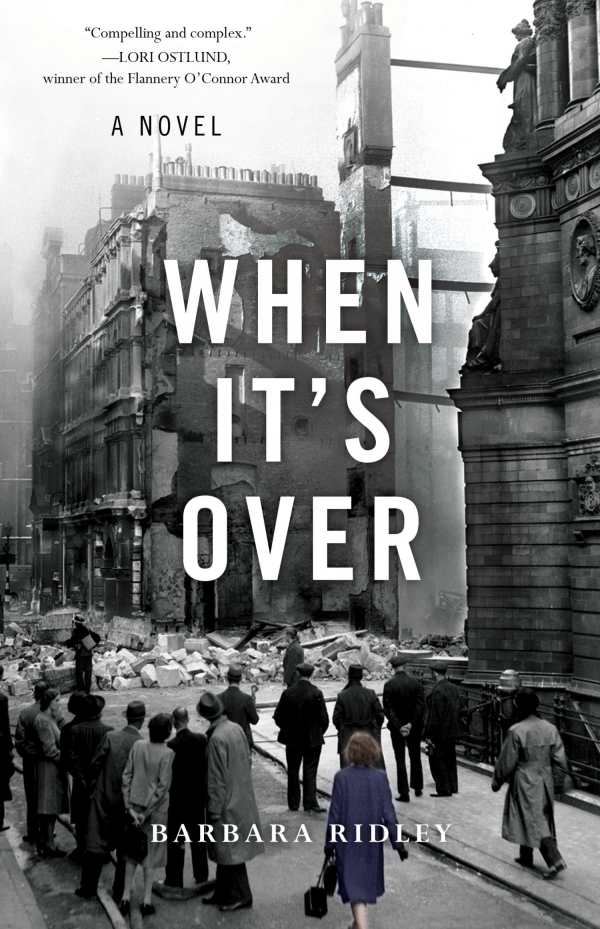When It's Over
A Novel
Thoughtful, touching storytelling provides a balm and resonance for our most human selves.
Set against the backdrop of WWII, When It’s Over is a poignant story that examines how history defines our humanity, and that explores experiences that transcend all times and places. Through the eyes of resilient Lena and her companions, author Barbara Ridley goes on a trans-European historical journey, discovering along the way what it means to move through formative years during formative times.
Drawing on true accounts including her mother’s story, Ridley weaves a storyline that is compelling without yielding to temptations of grandiosity. Lena is nineteen at the beginning of the tale, and lies to her father so that she can attend socialist organizing meetings in her native Prague. There, she meets Otto, a revolutionary who was expelled from Germany during Hitler’s rise. Her relationship with him begins a journey that takes her from Prague to Paris to London, and finds her developing a sense of self as the world wages war.
While Lena’s growth is sparked by her connection with Otto, it is hardly dependent on him. From the beginning, Lena is drawn as a woman with a mind of her own. Her relationship with Otto is more a story about discovering what love is than one of chasing it.
The narrative is a mirror for a quintessentially human experience: finding one’s way to a more mature knowledge of romance and relationships. Rather than seeking definition through interpersonal connections, Lena uses them as fodder for developing her sense of self. Romantic or otherwise, Lena’s relationships lead her toward what she wants in partnership, in politics, and in life.
As Lena and her companions grow together, she continually struggles with what it means to keep up with mundane necessities like buying milk and bread while the world is on fire. Her contemplations offer a comforting solidarity for anyone living in challenging times. At one particularly poignant moment, she looks around and realizes that “couples still strode arm-in-arm, still loved and needed each other.” Her deliberations offer a compelling case for honoring our humanity, even when playing out our larger roles in history.
Romantic without triteness and intelligent without laboriousness, seeing When It’s Over appear as a BBC miniseries in the ilk of Call the Midwife wouldn’t be a surprise. It’s a sweet read, with thoughtful, touching storytelling to provide balm and resonance for our most human selves.
Reviewed by
Jessie Horness
Disclosure: This article is not an endorsement, but a review. The publisher of this book provided free copies of the book and paid a small fee to have their book reviewed by a professional reviewer. Foreword Reviews and Clarion Reviews make no guarantee that the publisher will receive a positive review. Foreword Magazine, Inc. is disclosing this in accordance with the Federal Trade Commission’s 16 CFR, Part 255.

